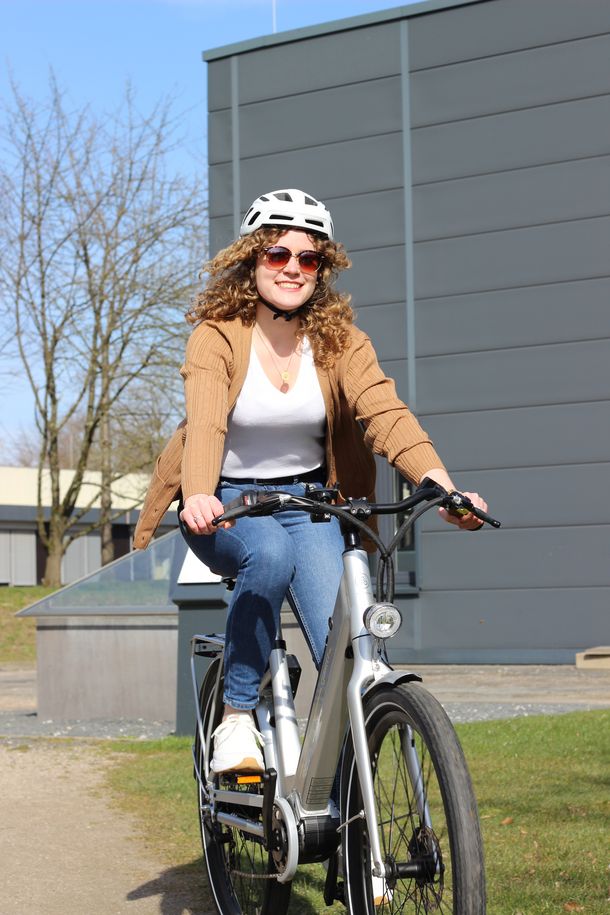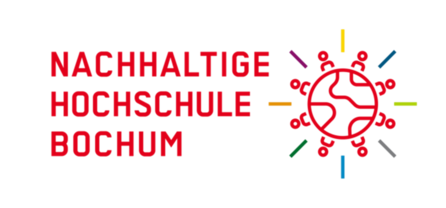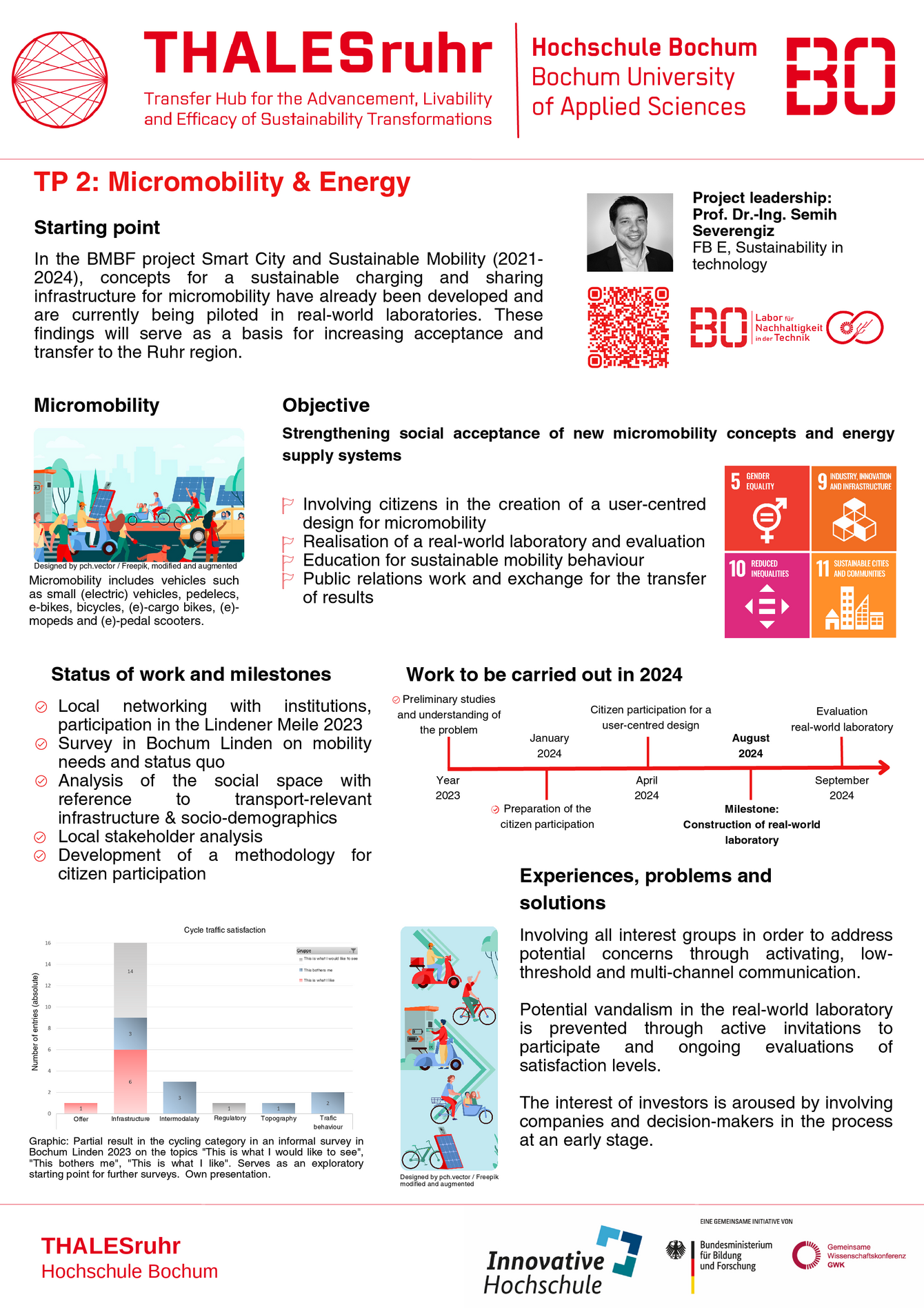THALESruhr - Transfer Project 2: Micromobility and Energy
THALESruhr - Transfer Project 2: Micromobility and Energy
The transformation of the transport transition to sustainable mobility is a broad field that is significantly influenced by the diversity of regional conditions and the individual mobility needs of users. In many city centers in Germany, new types of micro mobility services that represent a sustainable alternative to established forms of mobility have been increasingly offered in recent years.
In the urban peripheries, there is often a lack of sustainable mobility solutions, for example to cover the last mile. Micro mobility offers such as e-mopeds, pedelecs or e-load bikes make an important contribution to the transformation of the transport sector. In the suburban areas, there is often a lack of offers for a comprehensive use of rental vehicles as well as sufficient parking and charging infrastructure for electrified light vehicles (LEVs). The reasons for this include a lack of acceptance and thus a lack of willingness on the part of residents to use the services. In addition, companies face economic challenges in providing the sharing services, including the necessary infrastructure, in a commercially viable manner.
The profile-building project THALESruhr "Transfer Hub for the Advancement, Livability and Efficacy of Sustainability Transformations" of Bochum University of Applied Sciences is divided into a total of nine transfer projects of the THALESruhr transfer approach, which anchors the commitment to sustainable social development, especially in the Metropole Ruhr region, in the profile of the university and expands its role in the regional innovation system.

This transfer project 2, led by Prof. Dr.-Ing. Semih Severengiz, transfers specific knowledge in order to be able to design innovative e-micro mobility and energy supply services sustainably and economically in line with the requirements of users in the future. It is aimed at potential users and residents in peripheral urban areas, where fewer mobility services are available than in central urban areas. The involvement of municipalities, energy suppliers, and transport and mobility service providers is also planned.
The transdisciplinary research approach closely involves both society and economic partners in the project. First of all, spatial analyses are used to define target neighborhoods in the Ruhr Metropol Region. Within these neighborhoods, stakeholder workshops, citizens' forums, surveys and interviews will be conducted to develop a neighborhood-specific understanding of the problem. This will then provide the opportunity to develop a target image for an attractive, sustainable and economical micro mobility offer together with the stakeholders. Accompanied by citizen forums, the user-centric design of the technical charging infrastructure will be tested in a pilot phase in a real laboratory with continuous participation of the users. The knowledge gained from this will enable the adaptation and optimization of the user-centric design and the design of the knowledge transfer within the THALESruhr project. The entire project is accompanied by participatory activities with interested stakeholders.
Contact:

Project website (german):
https://www.hochschule-bochum.de/thales/
Duration:
From 01.01.2023
Topic:
Micromobility and Energy
Funding source:
Federal Ministry of Education and Research (BMBF)
Project sponsor:
Jülich Research Center Jülich GmbH
Funding Program:
Innovative Hochschule
Funding amount:
7.391.467 € (THALESruhr),
of which 326.531 € is for the transfer project 2.
Funding reference:
13IHS273




